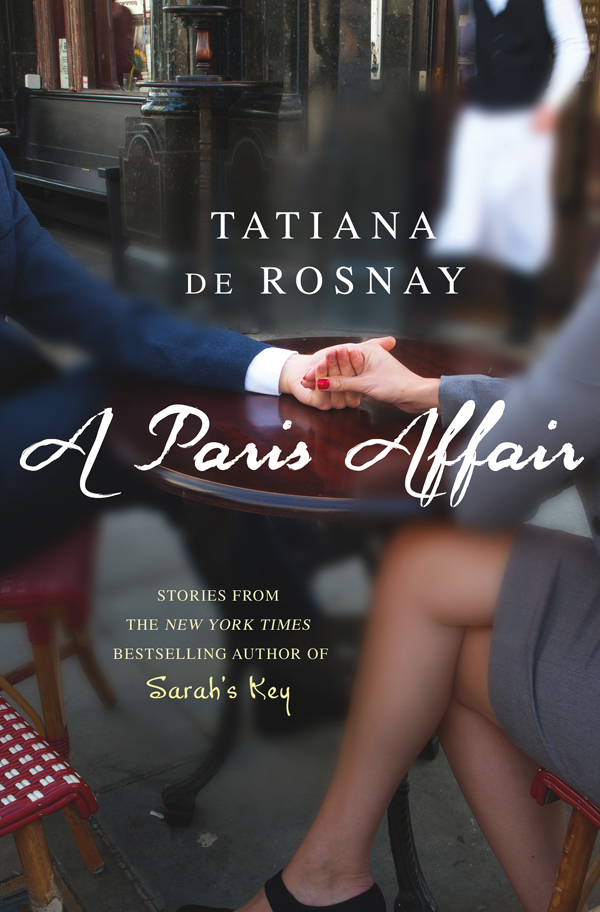
A Paris Affair
کتاب های مرتبط
- اطلاعات
- نقد و بررسی
- دیدگاه کاربران
نقد و بررسی

May 1, 2015
De Rosnay's stories demonstrate 11 ways to deceive and/or leave your lover. In this prolific French novelist's first short story collection, infidelity is a given, particularly for the male of the species. Retribution, however, is women's work. Technology is the petard by which many straying spouses are hoisted: in "The Texts," a wife opts for feigned ignorance of her husband's escapades-if only she can resist the temptation to hack his cellphone. In "The 'Baby Phone, ' " a baby monitor permits a hitherto trusting wife to overhear hanky-panky, and in "The Answering Machine," an unerased message is the harbinger of betrayal. Many of the stories have O. Henry-esque twist endings that American readers may find a bit old-fashioned. Among these is "Hotel Room," wherein a man drops off a letter ending his passionate liaison moments before the no-tell hotel-and perhaps his mistress-is engulfed in flames. Similarly, in "The Red Notebook," a cheating wife bemoans her husband's staidness, which is a sure sign she's in for a surprise. Readers seldom are, however: in "The Brunette from Rue Raynouard," a suspected affair turns out to be sex therapy, and in the "USB Key," a husband chooses an unusual medium to reveal that he's gay, with predictable results. The most promising stories seem to end just as interesting complications begin to arise. "The Password," about a randy professor and a young American studying abroad, refers expressly to the difference between French and American attitudes toward sexual harassment but, sadly, ducks the opportunity to elaborate. (The American women all have names like Hunter, Holly, Taylor, etc., as if de Rosnay has been cribbing from The Preppy Handbook.) In most cases the revenge meted out by the women is not particularly inventive, whether it involves fisticuffs, ("The Au Pair Girl"), sharp objects ("The 'Baby Phone' "), a dignified exit ("The Woods"), or a Raymond Carver-worthy apartment trashing ("The Strand of Hair"). Stylized sketches rather than fully realized fiction.
COPYRIGHT(2015) Kirkus Reviews, ALL RIGHTS RESERVED.

June 1, 2015
The stories in de Rosnay's (Sarah's Key, 2006) collection have adultery as their theme. In most cases, it is the husband who is unfaithful; that's just how men are, my dear, a mother tells her daughter in The USB Key. The computer accessory is just one example of the role technology plays in the stories; infidelity is also brought to light by a baby monitor and an answering machine. In The Password, an American student appalled by her professor's cheating ways (and made fun of for her puritan bullshit ) uses Facebook to reveal his hypocrisy after he writes a novel extolling the virtues of marital fidelity. In several stories, the wife turns the tables or exacts revenge. In others, such as Hotel Room, there is twist worthy of de Maupassant, who is just one of the French authors represented in the epigraphs that head each piece. Spare and wry, often unfolding in the form of conversations, letters, or journal entries, de Rosnay's stories don't say much for marriage, but they do say a lot about the need to love and be loved.(Reprinted with permission of Booklist, copyright 2015, American Library Association.)

December 1, 2014
This new story collection from the author of the New York Times best-selling Sarah's Key and, most recently, The Other Story, is reputedly hot, hot, hot. After all, what better place to explore the endless allure of forbidden love than Paris?
Copyright 2014 Library Journal, LLC Used with permission.

























دیدگاه کاربران